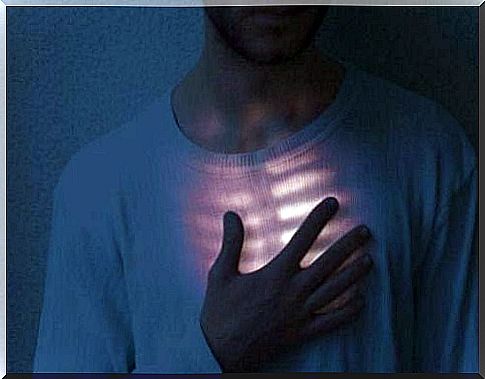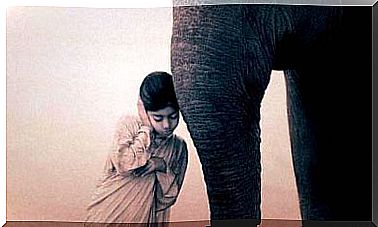Do You Know What Pathological Grief Is?

He who has suffered a very close loss knows what we are talking about. Pathological grief is like a spiral of pain that grows inside making it more and more difficult to breathe and live. It’s the air that’s missing daily, it’s the comfort that doesn’t exist, it’s the lack of hope that covers our present.
Grief, that completely normal phase we all immerse ourselves in when we’ve just lost someone (or something important in our lives), is a painful time for those who are experiencing it. But when it sticks to the person, when it has no end and when it prevents living in peace, we are talking about a different state. This qualitative leap in the process leads to the so-called pathological grief.
It’s a kind of emotional no-rest. A torture incarnated in routine, in feeling… in the body itself. But how is it possible to distinguish one from the other? It is very important to be aware of these differences because they affect the way in which mourning works. Furthermore, whether at a professional level or due to a relationship that we have with our own grief, the way of working will also change depending on whether we are experiencing one state or another.
Pathological grief appears when pain is withheld or denied
There are many people for whom pain is a kind of quicksand they want to get out of, but as they move or thrash they feel that with each passing day on the calendar they get more stuck. This feeling is often caused by the fact that they have not learned to relate to their own pain. They did not fulfill this learning process because they did not admit that this pain existed. In fact, many people who are trapped in pathological grief have never admitted to this pain, no matter how obvious the symptoms.
In this sense, there is a thought within society that is a prison for this pain: “Feeling pain is for cowards, you have to be brave, as I was taught early on”. This belief silences grief and reduces it to intimacy, the place where this bomb causes most wreckage and heartache.
This kind of thinking mechanism doesn’t help you walk the path of grief. It only makes it worse. It makes you ingrained. So many people deny their grief, place themselves as indestructible figures in their families and swallow any manifestation of “vulnerability”. Because “now is not the time to be sad”, “he would never have wanted this”.

These thoughts do nothing but bind us to the experienced process, a pathological grief. They deny and encapsulate it. They throw it under the rug or throw it in the “forgotten objects – always remembered” trunk. The more effort I make to smother something and keep it from coming out, the more I will increase what I’m covering up, while giving you control over how it manifests. There will come a point when what a person has done to avoid pain will be useless, and he will come out like lava from a volcano that has been waiting to erupt.
Our body is wise and will express this pain even if the mind wants to distract it
If there is a “force” in our body that we repress, it will definitely have to come out the other side. These people often develop somatic symptoms. What does not come out in the form of a verbal report will come out in a bodily and behavioral way. We cannot deceive our being. We are body and mind. Our bodies and minds are closely linked, so causes have effects in both places.
At other times, grief becomes more complicated when it crosses time barriers. When the years go by and the suffering remains fixed and immobile. When it didn’t lose intensity, nor was it reverted into a lifelong learning experience.
The normal “symptoms” of grief are intensified. They can develop depressive disorders, anxiety conditions and a behavioral maladaptation that prevent normal functioning in a person’s life. They develop symptoms that can lead to other associated problems. In these cases it will be necessary to intervene as soon as possible so as not to add more suffering to what already exists.
Therapy will help give new meaning to this painful experience.
It’s very important not to deny the emotions we feel, but it’s also important to be able to work with them when they overwhelm us to the point where it seems impossible to continue to exist. Therapy will help to work through this ingrained loss, as each person is a world, with a richness that is totally unique and different from the others.

There will always be guidelines to help us make our daily lives easier when we are in this situation. In this sense, it is important to have someone to share your own pain. Someone with whom I can build, little by little, new meanings about this experience. A painful experience, but full of wisdom about existence itself.
Don’t hesitate to ask for help when you need it, and don’t hold back your true emotions for how you heard you “should” react. Each one reacts as your body tells you. Listen to your body and give it the opportunity to heal itself or simply not get sick.
Repressing emotions can end up making you sick.









